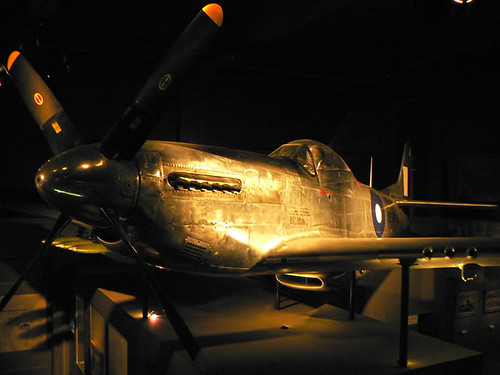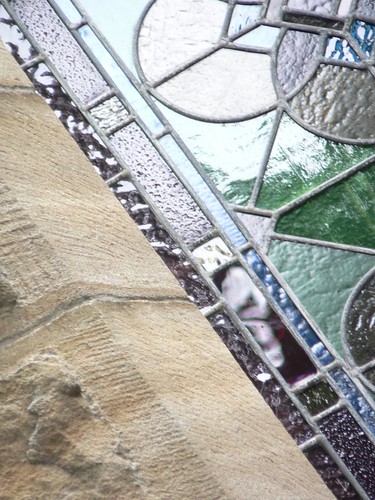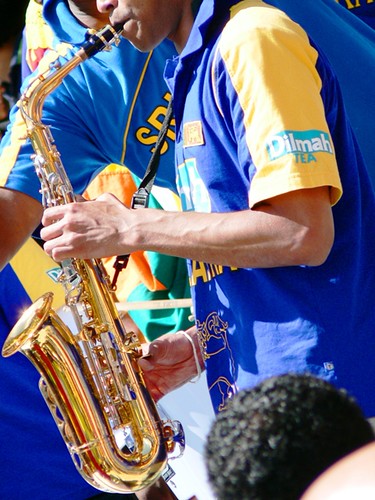(c) Harendra Alwis | Not to be reproduced without permission
He was in the world, and the world was made by him, and the world knew him not. He came unto his own, and his own received him not.
Samuel had an obsession for uncovering details in his stories that would have gone unnoticed in the eyes of most other journalists. His fearless and daring reports from the West bank had earned him a Pulitzer nomination two years ago and his colleagues at the Jerusalem Journal respected the professionalism with which he went about his work. To the world he was a celebrated journalist, anyone who could afford cable news anywhere in the world, knew his face well. His humour and playful personality masked the seriousness of his work and his razor-sharp wit.
He knew that something wasn't right about this story. Some of the details in it puzzled him. He found it difficult to put them together because they simply didn't seem to fit. Reason and logic could not glue the pieces of this puzzle in a way that made sense. Perhaps it required a degree of faith that he possibly couldn't admit to have.
He replayed every detail of what had happened during the last few days in his mind, as he drove to work. 'It's all over now', he told himself, all he had left to do was to investigate a few odd ends and he was sure he could seal the case forever. Suddenly his phone vibrated, throwing him off the mountain of thoughts he had built up in his mind. The number that lighted up his screen made him feel a bit nervous. The conversation lasted less than 5 minutes, but at the end of it, Samuel knew that the story was far from over - in fact this was just the beginning. He immediately called the Temple and after a brief but intense conversation, he could do nothing to wipe off the look of bewilderment from his face.
Eli was the news editor at the Jerusalem Journal. He had assigned Samuel to cover the execution of a man from Galilee who has been preaching to the masses all around the country for nearly three years. His name was Jesus - son of a wealthy carpenter. Some people claimed that he performed miracles and many others believed them. It was the mass popularity of his sermons however, that gave this story a significant political relevance. He had arrived in Jerusalem a few weeks ago and now lay dead in a tomb - crucified on the day before Passover.
Samuel had always been sceptical of religious people and that is why he was reluctant at first to work on the story. "God is not a magician" he told his mother over the phone once, who had called to tell him that her naigbhour had seen a blind man being cured by Jesus as he was passing through Samuel's hometown in Judea. In fact nobody in Jerusalem took much notice until the trial began. When Eli noticed that the Jewish elders who had sanctioned his arrest had backed off from making a judgement themselves, but had sent him to Governor Pilate, he sensed for the first time about the popular support that Jesus had from the people. But Pilate also refused to pass judgement and sent the man to Herod who also happened to be in Jerusalem at the time claiming he had no jurisdiction over people from Galilee. But in a bizarre turn of events, Herod had also refused to sentence Jesus and sent him back to Pilate. It was clear that nobody wanted to be seen with the blood of this man on their hands, possibly fearing a political backlash. That is when Eli asked Samuel to cover the story because he wanted his best political commentator on the job. As far as he was concerned, a story about any man who was popular enough to make the highest ranking Roman officials in Jerusalem think twice before executing him, would sell his newspaper.
The news Samuel had just received from his sources at the Governor's office had startled him. What had just happened seemed more unreal than any of the miracles that the man is said to have performed. Samuel was sure that this story could have no more twists, because after all, Jesus was now dead. That partially explained his bewilderment.
Briefly stopping at the door to knock, Samuel walked into Eli's office as soon as he saw Eli acknowledge his presence with a glance. Eli noticed the look on the young reporters face, but couldn't make up his mind whether he was excited or worried.
'How is the story coming up?' he asked calmly, 'I need it on my desk by 4 o'clock', but Samuel didn't seem concerned about the deadline. 'You may want to hear this first' he said, trying to arouse Eli's curiosity. 'The Governor's office had just issued a statement claiming that there had been an incident this morning at the tomb where Jesus had been buried and that his body is 'missing'. I just got off the phone with my source there and they tell me that it is likely the tomb was robbed early this morning. They can't confirm what time the attack took place. The high-priests have requested that the soldiers who were guarding the tomb to be locked away and they have now tightened security around the area'.
Eli's face lit up with the news. Like Samuel and many others in Jerusalem, Eli had also never taken much notice of Jesus. However, he knew that there were plenty of people who would notice the story now; and the expressions on their faces would also change when they glance at the headline with their morning coffee in hand. That was what mattered to him. 'Did you ask for an interview with the soldiers or the centurion who was in-charge?' Eli was always aware of the level of credibility and integrity he had to maintain in the news reports he authorised. People, who did not trust a single word that came out of a politician, trusted the same words when they were quoted in his newspaper. A reporters job however is to find out all the facts and write up the story with enough objectivity to make it seem credible, but at the same time stretch the facts to the borders of fiction - without actually crossing over - to make a full story out of it. Coupled with a sensational headline, a good story was a gold mine.
Samuel was aware of the fraction of veracity that he was expected to sacrifice when he wrote for a living, but he was convinced that he was fairly compensated for it. He never did anything against his conscience, but knew that he had to recast the truth into the shapes, sizes and colours that his audience preferred. 'The soldiers have already been remanded as requested by the high-priest's council and nobody is allowed to speak to them' Samuel blamed himself for not getting to the soldiers before they were taken away and missing the opportunity to find out what really happened. 'When I called the high priest's office they denied that they had made any such request and accused that security at the tomb was not tight enough. The Temple hasn't issued a public statement yet, but it's unlikely that they would accuse the Roman authorities publicly' he said without making any effort to hide his scepticism of the official explanation. 'The Governor's office on the other hand said that security was tight enough. They say that they had expected people loyal to the Nazarene to cause further controversy and were well prepared for it. I have the Centurion on record saying that the soldiers had instructions to be alert to attempts aimed at causing damage to the tomb or pilfer the body. After all, everyone was aware of the extent of public support the man had'.
'But how can they say that security was tight enough when they've already admitted that the body had been stolen from the tomb?' Eli didn't try to hide his confusion. 'The statement says that the body is 'missing', so technically, nobody's saying that it's been stolen' Samuel pointed out hesitantly. He always choose his own words carefully and knew how to pick up the hazy underlying semantics of a sentence even when the idea it conveyed seemed straightforward and clear. 'Actually I thought it was the end of this story when they crucified the man' said Eli, sounding genuinely intrigued for the first time during the conversation, 'but seems like somebody opened up a whole new can or worms'.
Samuel agreed. He had thought this was an open and shut case of an execution of a political prisoner. The man was surely insulting God by leading people to believe he was the 'messiah'; not that he cared much personally. He had no doubt that it must have been this heresy and blasphemy which ultimately convinced the people that Jesus deserved death on a cross. But he knew nothing that could explain why anyone would now risk their lives to steal his corpse. The facts he already had in his head led him to dead ends. He thought about who would rob the dead man's body and about a possible motive. The robbers weren't after any gold or silver because there was none in the tomb, and they had to be motivated by a reason so powerful as to make them want to risk attacking a troop of armed soldiers. What could they possibly do with the body anyway? The robbers had to be armed and in sufficient numbers.
These thoughts bounced off the edges of his mind in all directions as he walked along the straight line of bare grass that he had made over time, as he walked across the lawn everyday to avoid the longer route over the paved path form the car park to his office. He considered the bigger picture. Politicians always had facts to hide from the public eye. That's how things worked in Jerusalem. There was nothing out of the ordinary about the crucifixion of someone who dared to challenge the establishment. Samuel had no quarrels about the fact that such dissidents were a social burden and should be eliminated for the greater good. The history and social science he learnt in school had created no room in his mind for any doubt that the preservation of order and discipline in the country needed such measures.
Could the authorities have staged the robbery? However, he didn't understand what it was about this dead man that worried the temple so much as to stage a robbery of his tomb three days after his death. 'Is it possible that the high priests wanted to accuse the men who were faithful to Jesus of attacking the soldiers at the tomb and then prosecute them in the same fashion?' he asked himself. That would prevent any resurgence of the ideology that Jesus preached and reduce it to an unspoken memory that would die away with those who dared to stand by it. Samuel congratulated himself for making one possible connection. But on the other hand, it didn't make much sense because if that was the case, they would have already arrested some of his followers. Besides, it would embarrass the roman army if someone suggested that less than a dozen men could attack an armed Roman troop and run away with a corpse. As unlikely as his theories were, he didn't rule out any of them. He knew what he had to do now. He wanted to find out whether the men who came with Jesus had any motive to pilfer the body and whether they had enough men and weapons to challenge the armed soldiers. For that, he first had to find out where they were.



